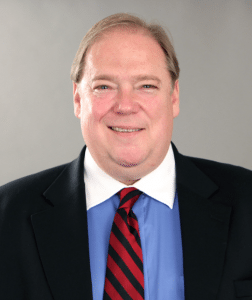
Getting your message across in familiar territory is challenging enough, never mind doing so in foreign countries. But it’s a globalized economy and getting more and more global every day. Edelman, for one, recently expanded its global footprint via the acquisition of Baird’s Renaissance—a move that marks the PR giant’s entry into Africa. François Baird, Africa chairman of Edelman and the founder of Baird’s Renaissance, spoke with PR News about how to do business in the continent.
PR News: What are the major challenges of conducting PR in Africa?
Francois Baird: The first step is understanding that Africa is not one country or one people, but a legion of different cultures and languages. For instance, Zambia is a small country, but has over 70 different languages and dialects. Even if English is the formal, and common language it is not the language of the heart. There are also great differences between regions in terms of Lusophone, Francophone and Anglophone Africa, and geographically between Northern, Southern, Western and Eastern Africa. So, it is important to focus on country and region and culture, which require much more sensitivity.
Secondly, there are not only different levels of development between countries, but also inside countries. If you are advising an agribusiness, you need to understand how the politicians and policy-makers and influencers in the central and regional capitals view regulation and policy, and how these would be influenced by regional organizations, but also have the know-how to be able to navigate local and rural sensibilities.
Third, the cost of getting things done is often higher than expected—if the level of production facilities in-country are not at the standard required by multinationals, importation and taxation add cost and time.
PR News: What are the opportunities for partnerships to better penetrate the region for your company (corporate) or client (agency)?
Baird: The communication challenges of Africa create the opportunities for partnerships; companies can share the cost of events and platforms for road shows, exhibitions, policy conferences or even social investments or development. Mobile networks, for instance, make great partners for tourism and leisure companies, consumer companies and pharma, and can often share communications vehicles and partnerships for community relations and development. By bringing our experience in difficult environments to clients across borders and cultures, we are often able to enhance communication opportunities and results.
People and relationships are key to expand. When we have a relationship with a tribal chief in an area for one client, the relationship can be expanded to other clients. Communication in Africa is still people-intensive, rather than technology and mass media driven.
PR News: What are the pros and cons of doing business in such uncharted territory? Do the same basic rules of PR apply?
Baird: Trust is still at the heart of communication. Africa is unforgiving when it comes to credibility and keeping promises. When we, or our clients, let communities or leaders down, it becomes a very challenging assignment next time around, and because the elites are small and well connected groups—we are cautious about whom we work for and what we do for them. This means we sometimes have to walk away from clients or projects that do not pass our smell-test, or add costs when we are wrong in our judgment.
On the other hand, when people understand that we are committed and consistent (and do not walk away from trouble once we are committed), we often have the opportunity to do really stunning work with great results.
Discretion is important. Our clients want to know that we'll protect them and stand with them. So we make sure that we are transparent in our billing approach and in reporting. We often have to educate our clients while serving their PR needs and it sometimes means saying no, or talking them into taking a risk that they cannot quite quantify or evaluate.
PR News: In terms of nuance, what are the differences in messaging in Africa? Are there differences in media relations? CSR? Crisis management?
Baird: Messaging has to be culturally aligned; in explaining the effects of national debt for a client we used cattle in one part of the country and chickens in another, where cattle is unknown. Highly sophisticated messaging to elite audiences has to be more literal when dealing with rural audiences. Cartoons are seen as unserious, for instance, or the use of singular is unacceptable since it is not about the individual in African culture but about the community—we, rather than I.
Media relations could be a challenge in places where journalists are poorly educated and in poverty, with the results that they expect clients to carry costs that are not acceptable in American or European traditions. There are also great differences in media planning; state-owned media have to be used to get government's approval, but privately owned media has more credibility. There are a myriad of nuances about which faction owns what and with whom do you align when supporting such media.
CSR requires consent. Africans increasingly want a say in CSR planning before accepting such programs. Some of the biggest failures we see emanate from global programs, implemented without consultation. It takes longer to consult, but results last longer, too.
Crisis management is very complicated in these much more challenging environments, where technology plays less of a role and relationships and judgment become critical. This is almost a separate discussion, where case studies can help explain the differences.
François Baird is chairman of Edelman Africa and the founder of Baird’s Renaissance.
